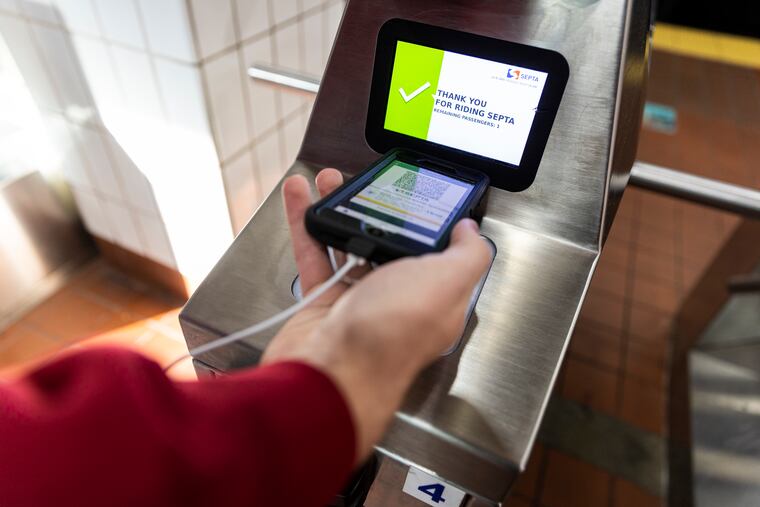The cost of SEPTA’s Key Card program has swollen far beyond its budget
SEPTA is transitioning to a more flexible payment system it calls Key 2.0.

SEPTA is spending an additional $1 million for tweaks to its Key Card, bringing the overall cost of the program to about $263 million — more than twice the amount originally budgeted to convert from tokens and paper tickets to a digital fare-payment system.
On Nov. 17, the transit agency’s board approved increases to two contracts: one for work officials said is needed to develop Key’s pay-by-phone option, now in its testing phase, and another to accommodate expansion of the new Key Advantage program, which allows employers to provide the cards free to their employees.
Key has suffered from delays and going over budget since it was introduced in 2016 — two years later than scheduled. SEPTA has scrambled to order fixes to problems such as a confusing user interface in stations and online, as well as to keep pace with rapidly developing technology and evolving financial security standards for the cards.
Riders have grumbled about the Key Card for years, and SEPTA has long faced criticism for the added costs.
“It’s beyond time for SEPTA management to give a full briefing to the board and the public about what’s going on with this program. We’re now years behind schedule,” Daniel Trubman, a public policy analyst and public transit advocate, said during the public-comment period at the November meeting.
» READ MORE: SEPTA is working out kinks in its mobile phone ticketing feature. Volunteer testers report frustration.
He said the agency should “really go into what went wrong, how they’re going to fix it, and what [lessons] they can learn for future capital projects.”
Richard Burnfield, head of major initiatives for SEPTA, said board members do press staff members for details on Key and other issues with tough questions. He also said public criticism is helpful.
“As a public agency using public money the expectation is that we’re accountable and transparent,” Burnfield said. “There are no blank checks.”
The two contract changes approved by the board:
An extra $641,228 to HATCH-LTK, an engineering firm, for project management and support services, including software development; building a new Key data center; and planning for Key 2.0. It was the 14th amendment to SEPTA’s 2011 contract with the firm, budgeted at $9.1 million. The cost for HATCH-LTK’s work has grown to $23.6 million.
An additional $437,108 to Conduent Inc., the main Key contractor, to get certification that the cards are compliant with banking security regulations; and for software changes to handle the Key Advantage program. It was the 29th amendment to the Conduent contract, raising its cost to $239 million, up from the $122 million budgeted in 2011.
The number of changes in the Key Card contracts over the last 11 years is “significant,” Burnfield said, but the cost increases also cover continuing operation and maintenance of the system — unlike with many projects.
SEPTA is preparing to solicit bids for a new contract in early 2023 to develop Key 2.0, which will accelerate the use of smartphone payment programs like Apple Pay and Google Pay, as well as allow riders to pay directly with their bank and credit cards at turnstiles and aboard commuter trains.